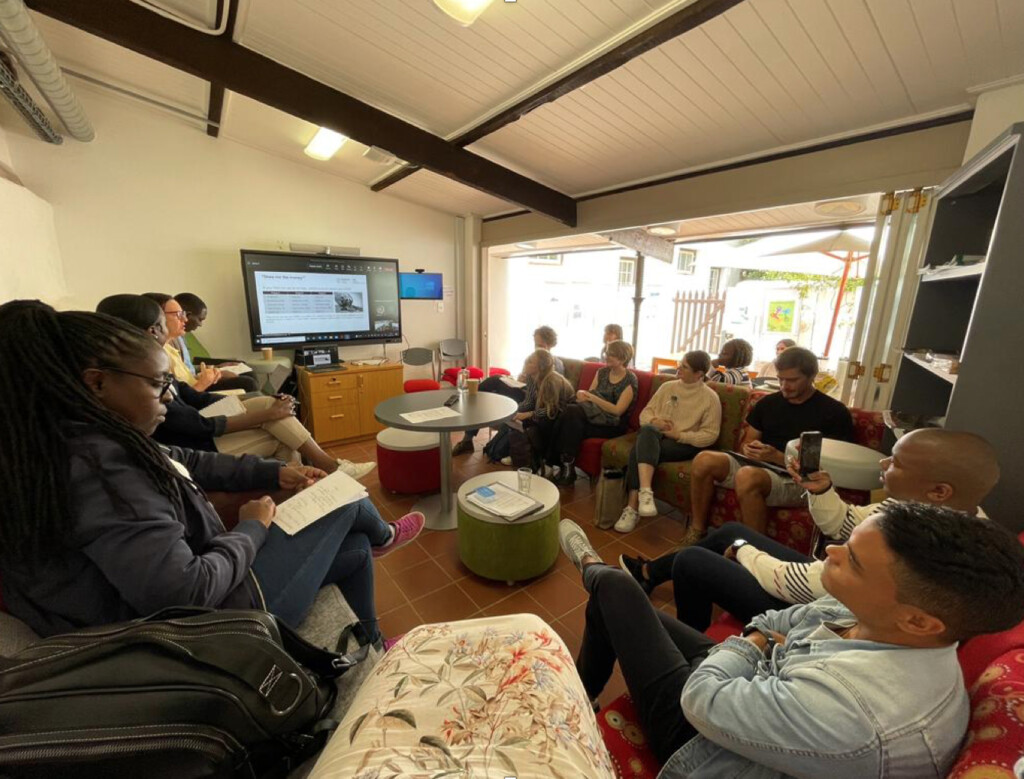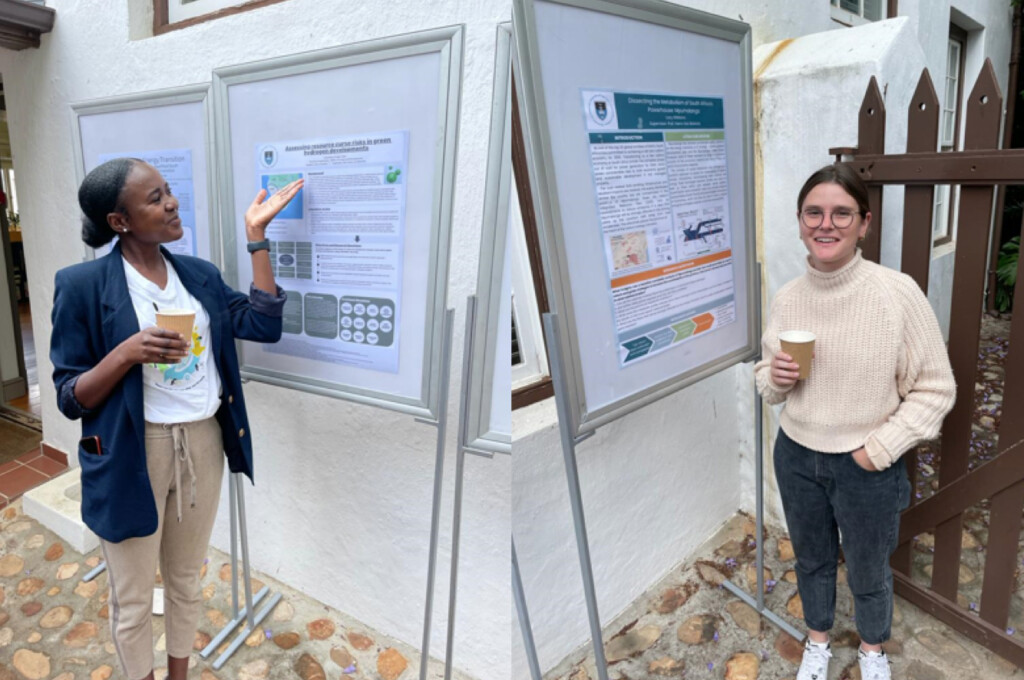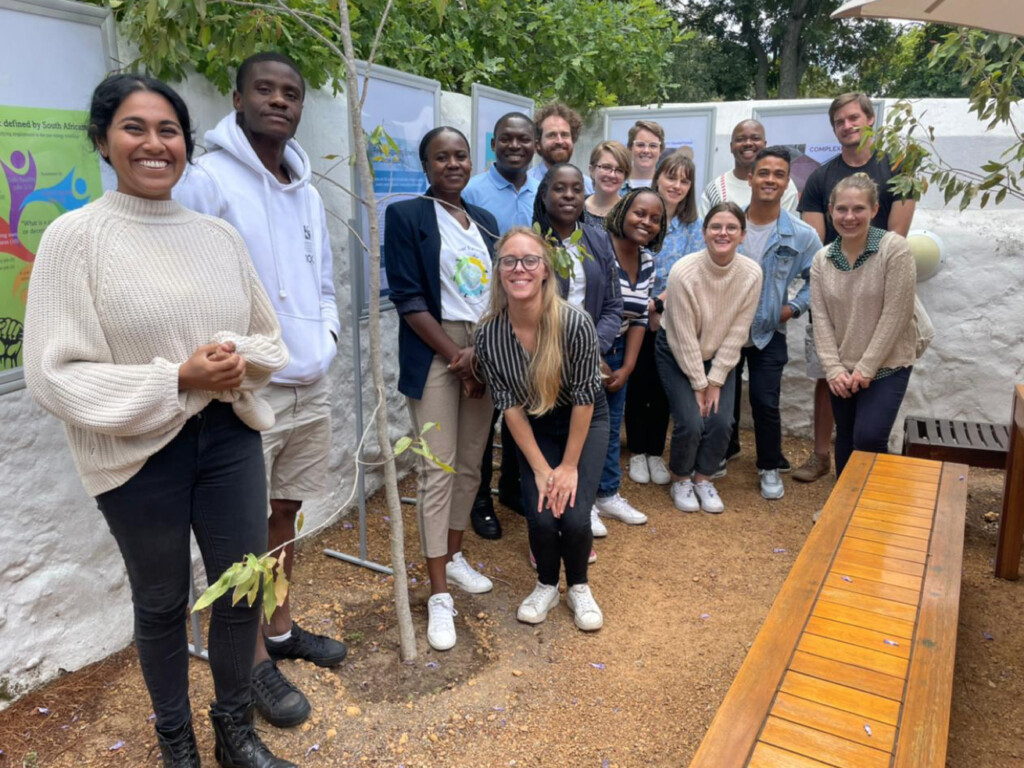On the 24th of November 2022, amidst the excitement of the 2022 13th International Sustainability Conference (IST), The Centre for Sustainability Transitions (CST) hosted an Early Career Researchers colloquium. Funding for the event was made possible by the National Research Foundation (NRF), and the event was hosted by the Energy Transitions research team at the CST, including Dr Nthabiseng Mohlakoana, Dr Megan Davies, Ms Alboricah Rathupetsane and Ms Merin Jacob. Masters and PhD students from Stellenbosch University (SU), the University of Cape Town (UCT), and North-West University (NWU) participated in a day of networking and knowledge sharing on research related to energy transitions in the global South.
The purpose of the colloquium was to foster meaningful engagements amongst students and early career researchers by facilitating discussions that looked beyond the usual academic knowledge exchanges. The sessions delved into the personal journeys of participants, their lived experiences and the lessons learnt arising from different methodological approaches to sustainability transitions research. Discussions also touched on the potential impact they hoped to contribute in South Africa’s transitioning energy landscape, recognising the urgency for just, equitable and sustainable development pathways.
The sessions were highly interactive, with students also taking on facilitative roles by co-hosting and chairing the engagements. The programme started off with a round of presentations where panellists presented for ten minutes each and then received feedback and follow-up questions from their designated respondents. Chantelle Moyo, a PhD researcher from NWU shared insights on the legal autonomy of municipalities in energy governance. Her presentation touched on the importance of legislative processes to give directionality to the energy transition. Kevin Foster, based at the CST, presented an element of his PhD research around how municipal financial sustainability is an integral consideration for the energy transition. A presentation by Mlondi Ndovela, a PhD student from the SU, explored the risks associated with private debt within the national economy and how this might affect the energy transition, before closing off with a presentation by MPhil student, Elzé van Achterbergh on change agents, institutional dynamics, and the importance of negotiating values amongst different stakeholders in transitions.

The discussions were followed by poster presentations, where students provided summaries of their research:
- Josie McCann from UCT on “A transitions-theory based analysis of modelling pathways to net-zero CO2 emissions in South Africa”
- Iyaloo Akuaake from UCT on “Assessing resource curse risks in green hydrogen developments”
- Keziah Mayer (PhD) from SU on “Local environmental stewardship: contributions to a good anthropocene”
- Lucy Gibbons from UCT on “Dissecting the metabolism of South Africa’s powerhouse: Mpumalanga”
- Elzé van Achterbergh from SU on “Change contagion – exploring the role of social interactions play in increasing support for corporate sustainability”

During the speed talk presentation session, the presenters provided a critical reflection and a compressed overview of their research studies. Presenters were:
- Alboricah Rathupetsane from SU presented on the potential for wind turbine manufacture in South Africa
- Willem Malherbe from SU presented on the resilience of commercial farming operations
- Garth Malan from SU presented on the opportunities of operationalising the water-energy-food nexus in Cape Town
- Neldje Dingambaye from SU presented on the role of the REIPPPP as an instrument for a just energy transition and sustainable development in the global South
- Muhammed Lokhat from SU presented on the role and concerns of labour and trade unions in South Africa’s the energy transition
The final session of the day included a presentation by SU PhD student and CST researcher, Wendy McCallum, on the role of finance and she discussed how rather than playing a facilitative role, the finance sector was a key director and enabler of renewable energy projects. MPhil student Nichola Richards presented on the role of Eskom in the transition as well as its shifting dynamic through the power sector reform was also discussed. The last presenter was Dominic Okoliko, a post-doctoral fellow from the SU, with a study that explored people’s perceptions of the coal phase-out as expressed on social media.
Through the facilitation of meaningful conversations, the colloquium was an opportunity to strengthen relationships across disciplines and institutions, celebrate successes and reignite motivation for sustainability transitions research in Southern Africa!


